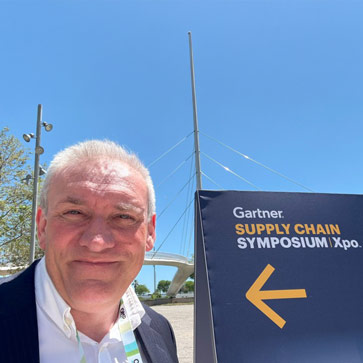
How a love for mathematics brought me to OMP
Ioana Simon - September 6, 2021

I haven’t always loved math. At school, my interest (and my grades) fluctuated with how engaging my current math teacher was. If a teacher didn’t have a passion for explaining the fundamental concepts and instead handed us formulas and equations like they fell from the sky I would mentally check out, do only the minimal of work required to pass, and spend the lessons passing notes to friends.
Math isn’t just a tool
Blog post
My luck was that I had a truly excellent math teacher in my final two years of high school. In our first lesson, she asked us what the point of math was. I answered that math was a tool for other natural sciences. This was met by a scoff and a reply that by the end of high school she would convince us that mathematics wasn’t just a tool, but “the queen of all sciences”. And she did: she took time to teach us the background concepts of any calculation we were working on, offered intuitive explanations for proofs, and gave us a peek inside what mathematics could be. It’s because of these lessons I decided to study mathematics at university.

Blog post
Doing incredible things
Over the next few years, I discovered that mathematics is everywhere, and that mathematical tools can be used to do incredible things. I met a researcher using mathematical models to calculate the best placement of windmills to ensure the least impact on local endangered bat populations, another using mathematical optimization to develop medical prosthetics, and a group using models to investigate how leukemia attacks the immune system. I got the opportunity to apply the skills I learned in lectures to help estimate the parameters of chemical experiments and to work in a group calculating optimal routes for parcel delivery.
Every problem is a math problem
Applications for math are endless because underlying many ‘real life’ challenges there are abstract mathematical problems. This is especially true in planning. Underlying the question of how to schedule a sequence of jobs to reduce overall machine set-up time is the traveling salesman problem, a mathematical problem intensively studied in academia. Underlying the issue of how to move volumes of product through a supply chain there’s a network flow problem. Ways of solving logistical issues, like figuring out the best routes for delivery vans, can be found in many mathematical journals. At the end of the day, it’s all math.
No math power? No match!
Blog post

After seeing all of this, I was ready to leave academia and apply my mathematics in the real world of supply chain planning. I felt sure that because there are a lot of opportunities in the industry to apply the power of mathematical optimization, it must get a lot of use. After all, almost every planning company’s homepage advertises AI-powered optimization technologies. I soon discovered, however, that what it says on the box isn’t always what’s inside.
At interviews I would ask what type of optimization methods were used, and whether the company kept up with current research. This was often met with hums and haws and confessions that “we don’t really do that here”. Algorithmic work was hardly ever done or outsourced, while in one large company there was said to be “one guy who developed this algorithm a while ago”. I became pretty crestfallen after a while. Could nobody outside academia see how great these methods are?
Blog post
Putting science in supply chain
At my first interview with OMP I could already tell that this company is different. I discovered they have a whole team of people devoted to developing and improving optimization solvers -- the Solver team -- with strong academic ties, backing theses and research. Using scientific and mathematical methods to solve customers’ planning issues is at the core of their business model, rather than being relegated to the sidelines. They have their own LP / MIP solver, for crying out loud.
I immediately knew that OMP was the place for me. I’ve been working here for over two years now, and I’ve been able to apply the mathematics I love so much to a diverse array of real-life challenges. I also get the chance to keep learning new skills, for example by following a course on machine learning.
At OMP, putting science in your supply chain isn’t just a slogan designed to make us look smart, it’s a promise we’re committed to, and it’s the reason I chose to work here.
Are you passionate about mathematics too and ready to put science in customers’ supply chains?

Ioana Simon
Supply Chain Consultant
Biography
Ioana is a consultant in the Solver team. There, she primarily works on the advanced S&OP solver and collaborates closely with project teams to ensure customers get the most out of OMP’s vast solver offering. She is passionate about mathematics and dislikes writing her own biography.





